As the 2025 holiday season accelerates, one thing has become abundantly clear: artificial intelligence is no longer operating in the background of consumer behavior. It has stepped firmly into the center of how people search, shop, evaluate, and decide.
New data from BrightEdge revealed a staggering 900% year-over-year increase in AI Overviews for grocery searches (see article link at the bottom), a signal that consumers are becoming more comfortable relying on AI to navigate their most essential, everyday decisions. What began as simple recipe suggestions has evolved into real-time, location-aware guidance that can tell you where to find a missing ingredient at 11 p.m. the night before Thanksgiving.
But the impact of AI this season stretches far beyond holiday meal planning.
AI-powered agents are rapidly transforming the broader shopping experience, influencing everything from product discovery to price comparison to final purchase decisions. The friction-heavy journeys of the past (opening ten tabs, digging through reviews, scanning product spec sheets) are quickly being replaced by streamlined, intelligent, conversational experiences that deliver clarity in seconds.
This transformation is not just changing behavior; it is rewriting the rules for marketing.
AI Adoption Is Surging, and Consumer Expectations Are Evolving
Over the past year, AI has shifted from an experimental tool to a mainstream companion for digital consumers. With generative AI now deeply embedded in search, shopping platforms, and retail partners, users have learned that AI can simplify complex tasks and accelerate decision-making.
This season, shoppers are leaning on AI for:
- Identifying the best gifts based on personal preferences
- Comparing prices and availability across retailers
- Reviewing trustworthy product insights
- Streamlining fulfillment and delivery decisions
- Receiving personalized shopping recommendations
The result is a consumer journey that is faster, more efficient, and increasingly agent-driven.
This shift is not reversible. As one tech leader put it, “You can’t put the genie back in the bottle.” Consumers have now experienced a better way to shop, and they’re not going back.
The New AI-Driven Discovery Funnel
One of the most important outcomes of this evolution is the emergence of AI as a frontline discovery channel. Marketers have long optimized for search, social, and mobile. Now, generative platforms represent a new and increasingly influential gateway for brand visibility.
However, these models are not pulling from traditional product detail pages alone. Instead, they draw from rich, structured sources of information, often long-form content from forums, reviews, technical documentation, and deep product explanations.
Many brands are realizing that their current content libraries were built for human attention spans, not for machine comprehension. As a result, large language models may be leaning more heavily on external long-form sources (like Reddit) than on brand-verified information.
This is quickly becoming a strategic risk.
To influence AI search results and ensure brand accuracy, companies must build content that is:
- Structured and machine-readable
- Authoritative and depth-oriented
- Optimized for questions intelligent agents are likely to ask
- Verified and consistent across channels
The brands that master this shift will hold a powerful advantage in the next generation of commerce.
Why Quality Content Will Beat Volume
We are moving out of the era of “AI slop”, the flood of low-quality, AI-generated content cluttering the internet. As consumer trust becomes more central to AI-driven experiences, models increasingly prioritize quality, credibility, and originality.
AI providers have a vested interest in feeding their models with accurate, reliable inputs. Consumers expect trustworthy answers; hallucinations erode confidence.
This means:
- High-quality branded content rises in visibility
- Shallow or duplicated content loses influence
- Authoritative sources become more valuable than ever
For marketers, this is a call to elevate content ecosystems, not by producing more, but by producing better.
Marketing Infrastructure Must Evolve for the Agentic Internet
Much of today’s martech stack, from analytics to content management to personalization, was designed for a world where consumers manually navigated websites, clicked through ads, and followed predictable paths.
Those days are ending.
AI agents are increasingly acting as intermediaries: summarizing, filtering, comparing, and deciding. This requires entirely new capabilities, including:
- Machine-readable content architectures
- AI-optimized product metadata
- Real-time data synchronization with intelligent agents
- New measurement frameworks aligned with AI-driven journeys
- Agent-level optimization strategies across retail partners
Over the next several years, major brands will rebuild significant portions of their infrastructure to align with the agentic internet. Some are already underway.
Speed Is Emerging as a Competitive Moat
The brands winning this season have one thing in common: they are not waiting for perfect playbooks. They are testing, learning, and experimenting across AI-enabled channels.
High-performing teams are already:
- Running AI-driven optimization tests
- Refreshing content structures for LLM readability
- Training models on brand-owned datasets
- Evaluating performance across marketplaces and retail partners
- Piloting agent-ready product information frameworks
In an environment evolving this quickly, speed compounds into advantage. The gap between early adopters and slow movers is widening, and it will continue to widen into 2026.
The Holiday Season Is a Preview of the Future
What we’re seeing today is not a seasonal spike in AI usage. It’s the early stage of a fundamental transformation in consumer expectations. People now trust AI to simplify complexity, anticipate needs, and accelerate decisions.
For marketers, the path forward is clear:
- Understand how AI represents your brand
- Modernize content ecosystems for machine comprehension
- Rebuild infrastructure for agent-driven journeys
- Experiment aggressively and learn quickly
- Invest in quality as a long-term differentiator
AI is reshaping not only how consumers shop, but how brands must show up.
The organizations that embrace this shift with urgency, curiosity, and rigor will define the next era of digital commerce.
Ready to discuss how AI will reshape your marketing strategy? Let’s connect.


